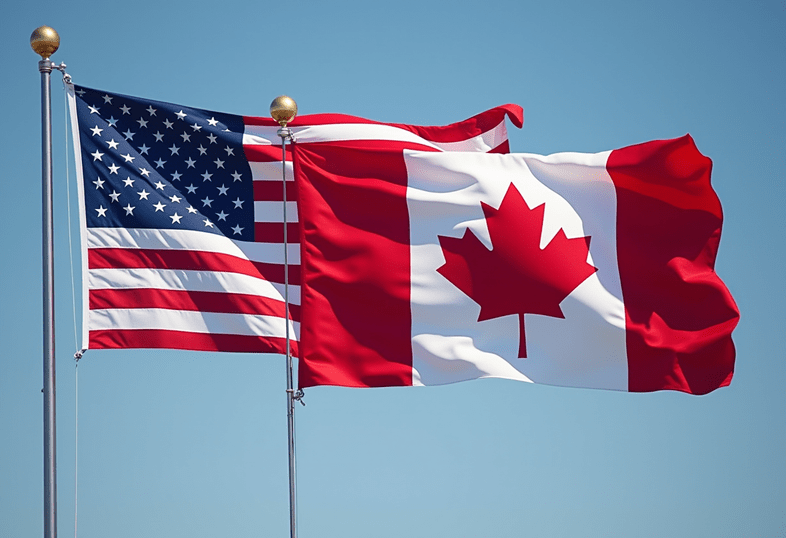The Financial Implications of Canada as the 51st U.S. State
by Ryan Perrakis · · 2 minute read

In what seems like a plot straight out of speculative fiction, the notion of Canada becoming the 51st state of the United States has been making headlines again. This idea, pushed by initiatives such as The Northern Accord, has sparked a range of debates, from political sovereignty to economic integration. But what does this mean for personal finance, investment strategies, and cryptocurrency in both nations?
A Political and Economic Union?
Recent statements from U.S. President Donald Trump have reignited the conversation about Canada's potential statehood. Trump has suggested that if Canada were to join the U.S., it would lead to the elimination of tariffs between the two countries, potentially benefiting both economies. Canadian Prime Minister Justin Trudeau, while acknowledging the complexity and sensitivity of the topic, has stated that Trump's intent to make Canada the 51st state is a "real thing".
Investment and Financial Markets
The prospect of such a union would undoubtedly have profound effects on investment landscapes:
- Stock Markets: If Canada becomes a U.S. state, we might see a harmonization of financial regulations, potentially leading to increased investment from U.S. investors in Canadian firms, or vice versa. This could affect sectors like real estate, technology, and natural resources, where Canada holds significant assets.
- Currency: One of the most immediate effects would be the adoption of the U.S. dollar, which could simplify cross-border trade but would also mean the end of the Canadian dollar. This transition would have significant implications for personal finance, particularly for those holding Canadian dollar-denominated assets.
- Cryptocurrency: With the U.S. moving towards clearer regulations on cryptocurrencies, a statehood scenario might expedite Canada's own regulatory framework to align with U.S. standards, potentially boosting crypto adoption and investment in the region.
Personal Finance Considerations
For individuals:
- Taxation: The tax implications could be vast. Harmonizing tax systems might benefit some while disadvantaging others, especially in terms of capital gains, estate planning, and retirement accounts.
- Real Estate: Property owners might see a surge in demand for Canadian real estate from U.S. investors, potentially inflating prices but also increasing property values.
- Investment Opportunities: The integration could open new avenues for investment, making Canadian markets more accessible to U.S. investors and vice versa.
The Role of Northern Accord
The Northern Accord initiative plays into this narrative by advocating for the economic and political benefits of statehood. Their platform argues that closer economic ties could lead to shared prosperity, with less bureaucratic red tape for businesses and individuals looking to invest or operate across what is currently an international border.
Conclusion
While the idea of Canada joining the U.S. as a state seems far-fetched to many, the financial and economic implications are worth considering. This scenario could reshape investment strategies, personal finance planning, and even the future of cryptocurrency in North America. As we watch this narrative unfold, staying informed and adaptable will be key for anyone with stakes in either country's economy.
For More Information:
- Explore the Northern Accord for detailed advocacy on Canada's potential statehood.
- Stay updated with the latest financial news and analysis on Wealthier Today to understand how such geopolitical shifts could impact your wallet and investment choices.
This article is for informational purposes only and should not be considered financial advice. Always conduct your own research or consult with a financial advisor before making investment decisions.
